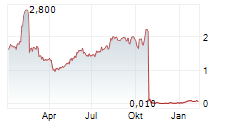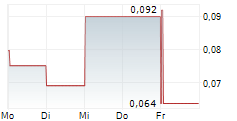Guard Therapeutics today announced that an independent Data Safety Monitoring Committee (DSMC) has completed the second and final planned review of safety data from the ongoing Phase 2b clinical trial, POINTER, which is evaluating the kidney-protective effects of the drug candidate RMC-035 in connection with open-heart surgery. The company has received a favourable and unanimous recommendation from the DSMC to proceed with the study as planned, as no safety concerns have been identified.
"We are very pleased with this positive news, which strengthens our confidence in the project. With patient recruitment progressing faster than anticipated, we are now in the final phase of enrollment and look forward to the upcoming milestones and the readout of results," says Tobias Agervald, CEO of Guard Therapeutics.
The DSMC has reviewed study data from 109 patients. A total of approximately 160 patients are planned to be included in the POINTER study.
Patient enrollment is expected to be completed shortly. Data collection for all patients continues for three months following surgery, which means that the overall study results are expected to be available by the end of 2025.
For further information, please contact:
Tobias Agervald, CEO
Telephone: +46 8 670 65 51
E-mail: info@guardtherapeutics.com
About Guard Therapeutics
Guard Therapeutics is a Swedish clinical-stage biotechnology company that identifies and develops new therapies for diseases with a large unmet medical need, focusing on different forms of kidney disease. The company's candidate drugs are based on the endogenous protein alpha-1-microglobulin. Guard Therapeutics is listed on Nasdaq First North Growth Market Stockholm (ticker: GUARD).
Certified Adviser is Svensk Kapitalmarknadsgranskning AB, www.skmg.se.
About the POINTER study
The POINTER study is a randomized, double-blind and placebo-controlled phase 2b study of RMC-035 with the main objective of establishing an optimal dosing regimen and exact target patient population for a future pivotal phase 3 study.
The study is expected to enroll a total of approximately 160 patients, of which at least 30% with chronic kidney disease defined as eGFR (estimated glomerular filtration rate) less than 60 mL/min/1.73m2. Patients will be distributed across two different dose arms of RMC-035 (60 mg and 30 mg) and one control arm (placebo) in a 2:2:3 ratio. Renal function before surgery is also a so-called stratification factor, which means that patients with and without chronic kidney disease will be distributed evenly between all treatment arms.
The study's primary endpoint is change in eGFR from study entry to 90 days post-surgery, which corresponds to the study's planned follow-up time. Major Adverse Kidney Events (MAKE) at 90 days post-surgery is a secondary endpoint consisting of either death, dialysis treatment, or = 25% loss of eGFR compared to pre-surgery. Data from the two dose arms with RMC-035 will be pooled and compared against placebo in the primary efficacy analyses.
About RMC-035
RMC-035 represents a completely new class of drugs (first-in-class) and consists of a recombinant and modified variant of the endogenous protein alpha-1-microglobulin. The investigational drug has the ability to protect cells and their mitochondria from damage caused by oxygen deprivation and elevated levels of the oxygen-binding and toxic protein heme. Favorable treatment effects of RMC-035 have been observed in several preclinical disease models. RMC-035 has a natural affinity for the kidneys and is primarily being developed as an intravenous kidney protective treatment for patients at high risk of developing acute kidney injury (AKI).
RMC-035 has obtained an Investigational New Drug (IND) clearance by the U.S. Food and Drug Administration (FDA) for the treatment of AKI in open-heart surgery. Additionally, RMC-035 has been granted Fast Track Designation by the FDA to reduce the risk of irreversible loss of kidney function, the need for dialysis treatment, or death after open-heart surgery in patients at elevated risk of AKI.
Results from the Phase 2 AKITA study, which enrolled 177 patients, demonstrated a statistically significant and clinically relevant favorable effect of RMC-035 on long-term kidney outcomes in this patient population. RMC-035 is currently evaluated in the Phase 2b POINTER study.
In addition to its evaluation in open-heart surgery, RMC-035 was also assessed in a Phase 1b clinical study involving patients undergoing kidney transplantation.
About the indication - kidney injury in open-heart surgery
The company's drug candidate RMC-035 aims to counteract kidney injury that occurs in connection with open-heart surgery and ultimately to reduce the risk of an irreversible loss of kidney function and future end-stage renal disease that requires dialysis treatment or a kidney transplant.
Open-heart surgery using a heart-lung machine typically involves coronary artery bypass grafting (CABG), with or without concurrent heart valve or aortic root surgery. This procedure often leads to significant kidney damage, primarily due to ischemia-reperfusion injury, where blood flow and oxygen supply to the kidneys are reduced. Another contributing factor is hemolysis, the breakdown of red blood cells, which releases harmful byproducts of hemoglobin that can damage the kidneys. Hemolysis occurs during extracorporeal blood circulation through the heart-lung machine, as well as following blood transfusions, which are commonly administered during the procedure. Additionally, the lack of oxygen and the effects of hemolysis often trigger a secondary inflammatory response, exacerbating kidney injury and increasing the risk of scarring and permanent loss of kidney function.
This information is information that Guard Therapeutics is obliged to make public pursuant to the EU Market Abuse Regulation. The information was submitted for publication, through the agency of the contact persons set out above, at 2025-05-27 19:30 CEST.


